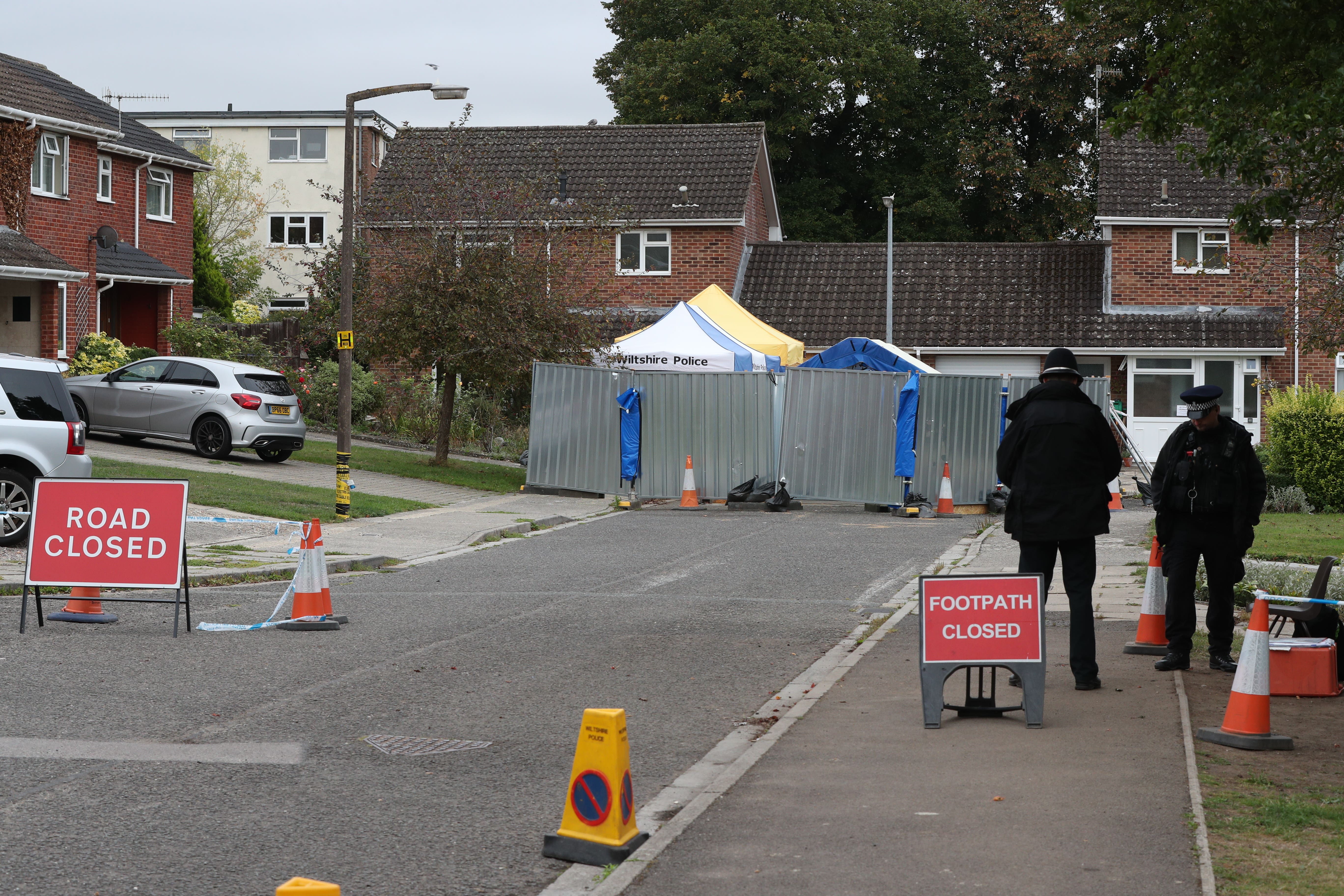Dismissive response to poisoning suggestions ‘disappointing’, top officer says
Commander Dominic Murphy said the officer had not ‘necessarily performed to the standard that we would have expected’.

Your support helps us to tell the story
From reproductive rights to climate change to Big Tech, The Independent is on the ground when the story is developing. Whether it's investigating the financials of Elon Musk's pro-Trump PAC or producing our latest documentary, 'The A Word', which shines a light on the American women fighting for reproductive rights, we know how important it is to parse out the facts from the messaging.
At such a critical moment in US history, we need reporters on the ground. Your donation allows us to keep sending journalists to speak to both sides of the story.
The Independent is trusted by Americans across the entire political spectrum. And unlike many other quality news outlets, we choose not to lock Americans out of our reporting and analysis with paywalls. We believe quality journalism should be available to everyone, paid for by those who can afford it.
Your support makes all the difference.Counter-terrorism police’s “dismissive” response to suggestions that an ex-Russian spy may have been poisoned was “extremely disappointing”, a top officer has said.
Commander Dominic Murphy, head of the Metropolitan Police’s Counter Terrorism Command, said the officer who took calls on the evening of March 4 2018 had not “necessarily performed to the standard that we would have expected from all of our officers”.
An email from April 2021 from Wiltshire Police Inspector Gill Hughes, previously shown to the Dawn Sturgess Inquiry, said special branch had been “very dismissive” of the information provided about Sergei Skripal’s poisoning by the force’s control room.
I have had the opportunity to look and see the evidence provided in the last few days and I don't think that officer necessarily performed to the standard that we would have expected from all of our officers
Counsel to the inquiry Andrew O’Connor asked Mr Murphy on Tuesday: “If Inspector Hughes is right about the way in which her queries were responded to, would you agree that that is an inappropriate and unprofessional way to react to a query?”
Mr Murphy replied: “Yes. It’s extremely disappointing actually.
“We ask a lot of CTP officers performing on-call duty all around the country, and of course – particularly when we’re encouraging forces to get in touch with us – we clearly expect the on-call CTP officer to provide an entirely professional response in terms of how they approach that contact.
“I have had the opportunity to look and see the evidence provided in the last few days and I don’t think that officer necessarily performed to the standard that we would have expected from all of our officers.”
Mr Murphy recalled sending police officers into scenes “contaminated with one of the most dangerous substances on the planet” after the Salisbury Novichok poisonings.
He told the inquiry it was an “extremely sobering moment” when they discovered a nerve agent was present in the Wiltshire city.
Mr Murphy, who had also worked on the case of poisoned Russian defector Alexander Litvinenko, said the Salisbury poisonings were “truly an unprecedented incident of a scale that we had not seen”.
Officers were investigating the attempted murders of former spy Mr Skripal, his daughter Yulia and then-police officer Nick Bailey, who were poisoned in Salisbury in March 2018.
Ms Sturgess, 44, died on July 8 2018 after she was exposed to the nerve agent, which was left in a discarded perfume bottle in nearby Amesbury, Wiltshire.
Speaking about the level of media interest in the incident at the inquiry on Tuesday, Mr Murphy said: “Even with (the Litvinenko case) in mind, this was truly an unprecedented incident of a scale that we had not seen both in terms of the media interest and, even in the early hypothesis that this had been a state sponsored incident.
“Clearly, that then brings additional complexities into how we communicate with each other, day-to-day management of our investigation.
“It was so unprecedented on lots of levels, but yes, media were real and present in every aspect of Salisbury, in almost every aspect of police activity.”
Counsel to the inquiry Andrew O’Connor then said: “It must also have brought into focus the tension… between, on the one hand the role of the police and the need to protect the public.”
Mr Murphy replied: “Yes.”
Mr O’Connor continued: “The need to protect the public must have been all the more obvious once you realised that there was actually a nerve agent in play?”
The officer responded: “I would describe it as a very sobering moment that there was a chemical warfare agent present in Salisbury, responsible for Sergei and Yulia’s poisoning.
As you will no doubt hear, we were putting police officers in scenes that were contaminated with one of the most dangerous substances on the planet and that was a very substantial decision to be taking in a leadership sense
“We had a number of scenes now that we were clearly deeply concerned were contaminated with that and yes, there were significant implications then for anybody who may have been to those locations and of course where there might be contamination that we are unaware of.
“So yes, it’s an extremely sobering moment in a very unusual investigation.”
The counsel to the inquiry then asked: “There are similar considerations, are there not, relating to the safety of your police officers?”
Mr Murphy said: “Yes, absolutely.
“As you will no doubt hear, we were putting police officers in scenes that were contaminated with one of the most dangerous substances on the planet and that was a very substantial decision to be taking in a leadership sense.
“But also, those officers were all volunteers going into that work.”
The inquiry continues.